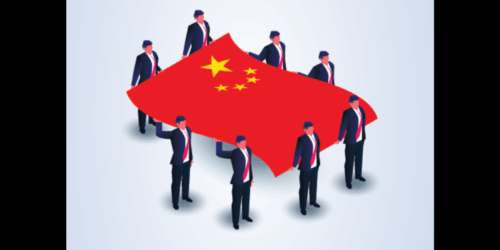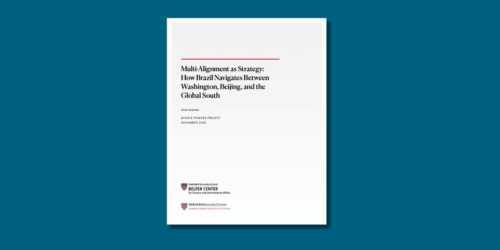Cambridge, Mass.— On August 7, 2015, the Harvard Kennedy School Ash Center for Democratic Governance and Innovation and the Cheung Kong Graduate School of Business (CKGSB) hosted a conference on responsible business leadership in the U.S. and China. The event was held as part of the Ash Center and CKGSB’s joint research and executive education initiative exploring how the private sector can contribute to the public good in innovative ways beyond the traditional means of providing employment and goods.
Director of the Ash Center and Daewoo Professor of International Affairs Tony Saich made opening remarks and CKGSB Founding Dean Xiang Bing delivered a keynote speech describing the strikingly similar challenges facing both countries in terms of income inequality, sustainability, generating new perspectives on leadership focused on innovation, and moving past dichotomous thinking related to public/private and East/West differentiations. While it is important for businesses to make a profit, Dean Xiang Bing said, the ability to “compete with compassion and empathy” and consider the well being of communities is crucial to the success of today’s business leaders.
Congresswoman Grace Meng (D-NY) also made remarks, describing the importance of social responsibility and corporations’ role in helping to alleviate global poverty. The following panel discussion was moderated by Professor Saich and included T. M. Chang Professor of China Studies at Harvard University William C. Kirby; Faculty Chair of the MPP Program at the Harvard Kennedy School John D. Donahue; CKGSB Honorary Professor and Chairman of the CKGSB Committee on the Humanities Tu Weiming; Professor of Economics at CKGSB Leslie Young; CEO of SK China Co., Ltd. and CKGSB Student Sun Ziqiang; and President of Luye Pharmaceutical Group and CKGSB Student Liu Dianbo.
“The panel covered a lot of ground,” said Jorrit de Jong, a lecturer in public policy at HKS and the Academic Director of Innovations in Government Program at the Ash Center. “From a philosophical approach to understanding social responsibility in business, to different frameworks for creating public-private partnerships, to examples of existing collaborations, it is clear that social responsibility is a fundamental and growing part of modern business leadership. We hope the partnership between the Ash Center and CKGSB will serve to leverage the position and assets of private sector organizations to benefit the public good, while laying the foundation for a long-term, sustainable collaboration.”
ABOUT CKGSB
Established in Beijing in November 2002 with generous support from the Li Ka Shing Foundation, CKGSB is China’s first faculty-governed, non-profit, independent business school. CKGSB has developed into a prominent business school with 45 full-time professors, who have earned their Ph.D.’s or held tenured positions at top business schools such as Harvard, Wharton and Stanford. Their research has provided the basis for over 300 case studies of both China-specific and global issues. CKGSB has campuses and teaching facilities in Beijing, Shanghai, Shenzhen and New York, as well as offices in Hong Kong and London. The school offers innovative MBA, Finance MBA, Executive MBA, Dual-Degree EMBA with IMD, Finance EMBA, Doctor of Business Administration and Executive Education programs. To learn more, visit
english.ckgsb.edu.cn.
About the Ash Center for Democratic Governance and Innovation
The Roy and Lila Ash Center for Democratic Governance and Innovation advances excellence and innovation in governance and public policy through research, education, and public discussion. Three major programs support our mission: the Program on Democratic Governance; the Innovations in Government Program; and the Rajawali Foundation Institute for Asia. For more information, visit
www.ash.harvard.edu.


